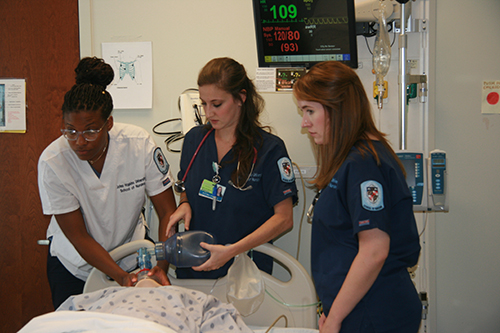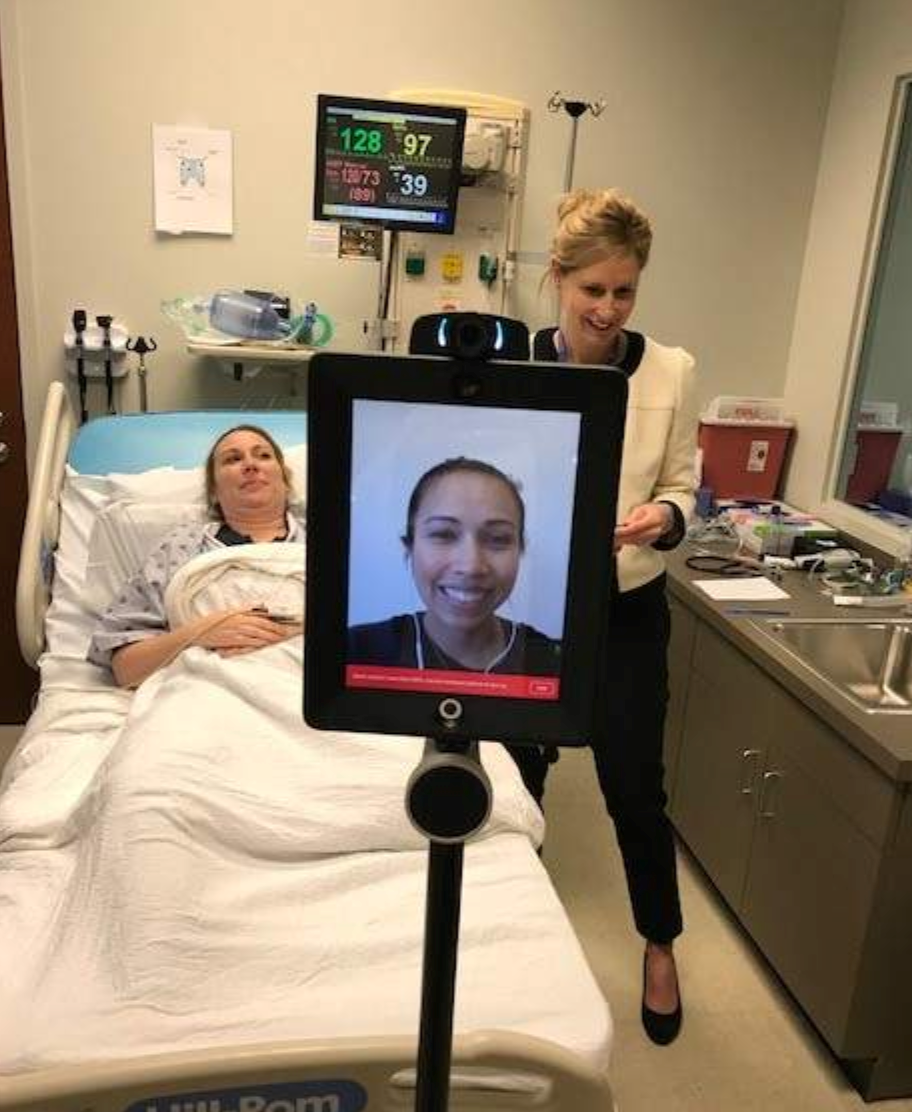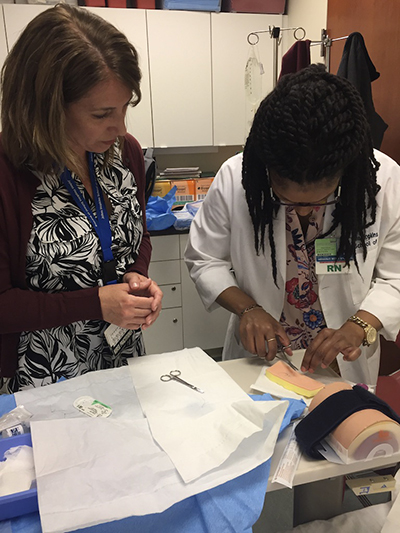Immersive Learning
MSN (Masters Entry Into Nursing)
The Johns Hopkins School of Nursing Masters Entry into Nursing is a five-semester program that includes didactic and clinical experiences. The clinical experiences include traditional supervised clinical and simulation. The clinical simulations are run by a dedicated team of simulation experts who ensure the quality, integrity, and relevancy of simulation exercises in the context of our rapidly evolving healthcare landscape. To increase fidelity of the learning experiences, the simulation sessions employ technologies that are equivalent to what our students employ in their clinical settings. This includes a variety of “patients” in the scenarios. We have high fidelity manikins that breath, open and close eyes, have palpable pulses, breathe sounds and bowel sounds. We also use very high-fidelity standardized patients or actors when appropriate such as in psychiatric scenarios. To provide key OB experiences we utilize birthing and newborn manikins. We also have infant and toddler manikins to facilitate pediatric experiences. The specific simulation scenarios utilized are designed to complement course objectives. For instance, in the first level med/surg course, Common Health Alterations, the scenarios focus on patient safety, communication, recognition of changes in patient status, and mobility. In the third level med/surg course, Complex Health Alterations, the focus shifts to more complex health issues; sepsis, airway emergencies, trauma and bleeding, surgical complications, and organ donation.

Immersive Learning Practice
IMMERSIVE LEARNING: VIRTUAL REALITY, SCREEN-BASED VIRTUAL SIMULATION, & TELEPRESENCE ROBOTS
 Immersive Learning: Virtual Simulation & VR
Immersive Learning: Virtual Simulation & VR
Johns Hopkins School of Nursing has implemented multiple innovative technology solutions to engage learners. We have established a large-scale virtual simulation program including screen-based simulation and fully immersive virtual reality (VR) curriculum across all the programs at the school. This curriculum encompasses all the elements of simulation standards of best practice.
Telepresence Robots
In order to facilitate distant simulations a device utilized for a telepresence allows the end user to control and interact with the on-site simulation. The use of a device such as Double Robotics allows for a hybrid classroom experience for both on-line and in-person students which promotes the ability for nurses to continue to work and pursue an advanced education. Promoting an on-line experience allows for growth of advanced practice programs and increases the of potential nurse faculty. Furthermore, utilizing a device that allows the end user/learner to participate in simulations taking place on-site allows for the expansion of IPE and improving communication skills.

Immersive Learning: DNP-Advanced Practice Simulation Programs
The Johns Hopkins School of Nursing has developed a full-scale simulation curriculum for all the DNP Advanced Practice programs. The DNP-AP program utilizes high-fidelity mannequins, procedural training with task trainers, virtual simulation, VR, standardized patients (SP), and objective structured clinical exams (OSCEs). Further, the DNP-AP program provides distance learning and onsite immersions. These immersions provide the students the opportunity to train with the faculty and students from across the country.
View more information about our DNP Advanced Practice Programs
